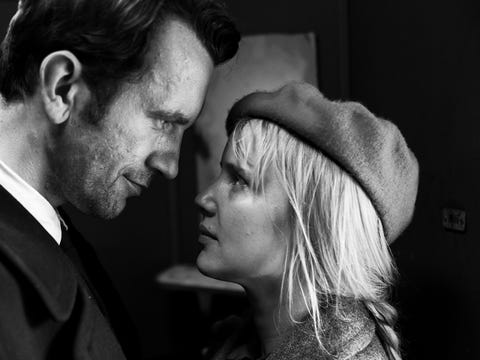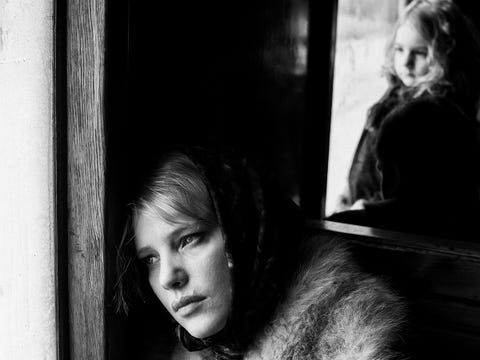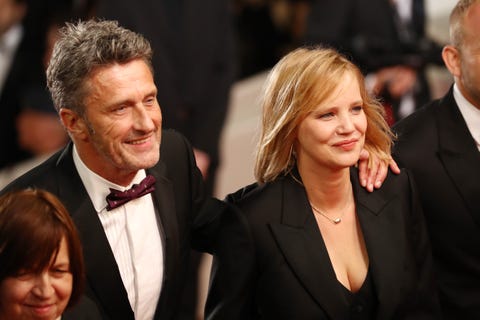18.1 Origins of the Cold War Guided Reading
Cold War doesn't take place in an immediately recognizable world. After all, the film, directed by Oscar-winning filmmaker Pawel Pawlikowski, is shot entirely in black-and-white, and its characters, who we meet when they're living in 1950s Poland, don't speak a word of English.
Thanks to a universally appealing love story—it follows a young singer and her conductor in a wrenching will-they-or-won't-they romance that takes them back and forth across Europe for years—the movie (which opens this week) manages to make a powerful connection with audiences and critics.
The film won Pawlikowski the Best Director award at this year's Cannes Film Festival and has taken home prizes from the British Independent Film Awards, the National Board of Review, the New York Film Critics Circle, and the European Film Awards, just to name a few. ("Pawlikowski compresses entire worlds into this exquisite black-and-white drama, which movingly sets love, art and self-determination against tyranny," said the New York Times.) In fact, just the week it was shortlisted for the Best Foreign Language Film Oscar category.

Lukasz Bak
It's no great surprise that there's already buzz around the film's chances at the upcoming Academy Awards—and not only in the foreign-film category. Polish actress Joanna Kulig's turn as Zula, that singer who outruns a troubled past only to find herself plagued by a doomed romance, also seems statue worthy. Not only does Kulig—a go-to talent for Pawlikowski; she's appeared in three of his films—bring to the screen Zula's harrowing attempts to find happiness in a difficult world, but often she does so while singing and dancing. Here, during a trip to the U.S., Kulig talks to T&C about the most difficult parts of making the film, as well as the most unexpectedly rewarding.
Since this movie premiered at Cannes in May, it's been steadily building steam. What was it that first got you excited about making the film before all of this excitement existed?
Pawel wrote this part for me. That's why when I read the script. I also knew it was a part I had to play and a great opportunity to show off my skills because it wasn't only about acting, but also singing. I was so happy because it was my third collaboration with Pavel and he's written all three for me, but this time was the main character so I knew it was special. I also knew it was about his parents, so it would be very personal for him.

Lukasz Bak
Singing is a huge part of this role. How did you prepare to sing on screen?
Music was my first love; acting was something that wasn't important to me early on. I never thought I'd become an actress. When I was small—I grew up in a village outside of Krakow—my brothers and sisters and I would play folk instruments and make music in our home. Later, when I studied acting I started to understand it was possible to do both acting and singing, but until Cold War, I never before found a part that had both. That's part of what made this so special.
Does having multiple mediums in which the character expresses herself make your job more difficult?
It was more difficult. In one scene, [the conductor] Wictor surprised Zula during a performance, and it was difficult to film because I was dancing and singing already, and then had to find a moment with the camera to register the surprise of seeing someone after something like 12 years.

Tristan Fewings Getty Images
We had to repeat it 25 or 30 times and remember each of the elements—being proper about the dancing and singing—without letting go of the emotions going on in the character's head. It took a lot of concentration on a lot of elements, but I like when something is difficult. When I saw the film for the first time, I was able to be proud of all of that hard work.
The movie has had earned such a strong reaction. Was that surprising to you?
I was surprised in Cannes when we got a standing ovation. The film is so powerful and beautiful and sad, but of course you never know what will happen with an audience. Luckily, people from all over the world have told me they loved the story, and then I understood that it wasn't only a local subject but something everyone could feel.
Has hearing these reactions made you think differently about the work you've done?
After one screening, someone said to me, "this couple couldn't find a place to be together and be happy." I didn't feel like that during my preparation, but when she said that, I knew it was true. They didn't have a place to be in love. I like to think that maybe at another time, they could have been happy.
Adam Rathe Senior Editor, Arts and Culture Adam Rathe is a senior editor at Town & Country, covering arts and culture and a range of other subjects.
This content is created and maintained by a third party, and imported onto this page to help users provide their email addresses. You may be able to find more information about this and similar content at piano.io
18.1 Origins of the Cold War Guided Reading
Source: https://www.townandcountrymag.com/leisure/arts-and-culture/a25608147/cold-war-joanna-kulig-interview/
0 Response to "18.1 Origins of the Cold War Guided Reading"
Post a Comment